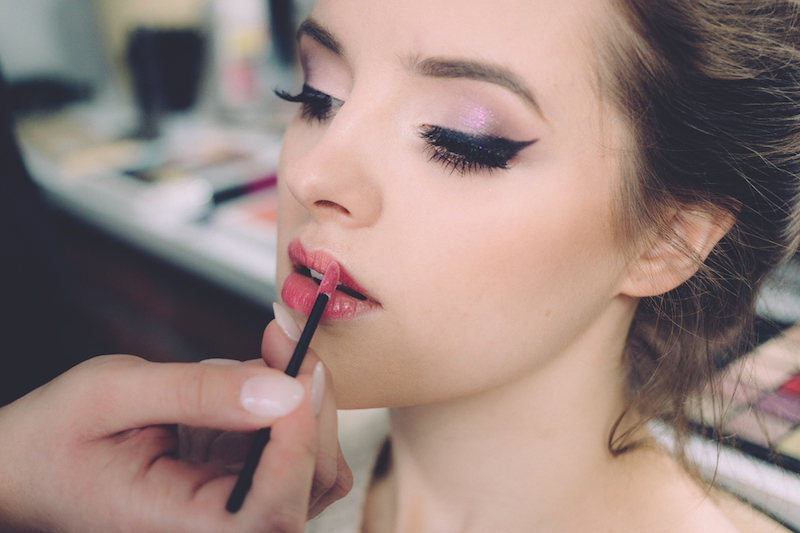From finding staff to choosing the right beauty salon insurance, running a successful health and beauty business can be demanding. There’s no doubt it’s a booming industry to be in right now. The UK hair and beauty industry is worth an estimated £6.2 billion according to statistics compiled by Habia. This vibrant marketplace is populated by more than 35,000 hair salons and 3,000 barbers. There’s also 1,500 nail salons, 14,000 beauty salons and mobile beauty therapists, and 400 spas. And, according to Habia, it’s an industry on the rise. That’s because of “consumer trends, the influence of fashion and the desire to look younger, coupled with economic growth, and the associated increase in real disposable income.”
But it’s important to remember that with growth and success come as many risks as opportunities. In this comprehensive guide, we cover all of the key aspects of these risks for beauty salon owners. And we tell you everything you need to know about the beauty salon insurance that will protect you.
Know your legal responsibilities
A salon can be a very busy ‘living’ environment, in which employees and members of the public can face many different types of risks. While having proper beauty salon insurance is essential, it also important to understand the legal requirements placed on salon owners in regards to providing a safe environment for staff and employees. These requirements are covered by:
Offices, Shops, and Railway Premises Act – This requires that all salons have sufficient, properly maintained firefighting equipment, adequate ventilation and lighting, a sanitary overall environment and washing/ toilet facilities for staff.
Workplace Regulations Act – This sets out your responsibilities for the working environment, including flooring types, sanitary working environment and equipment maintenance.
Employers Liability Act – Under the Employers Liability Act you are required by law to have employer’s liability insurance which will cover you against claims for compensation made by any employees who have suffered injury or ill health as a result of their working activities.
Personal Protective Equipment at Work Act – You must provide any necessary protective equipment for salon employees using potentially hazardous chemicals in their work.
Control of Substances Hazardous to Health (COSHH) – This requires that salon owners control hazardous chemicals properly, monitor exposure levels and provide necessary training in their use.
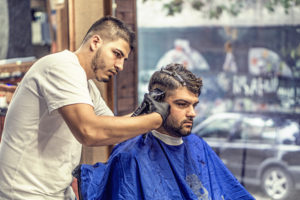 Carrying out a risk assessment
Carrying out a risk assessment
By law, you are required to carry out a health and safety risk assessment. This is to ensure that you have identified potential risks and taken necessary precautions to mitigate them. You can find out more your requirements here. View a sample risk assessment for a hairdresser on the Health and Safety Executive’s website here.
What risks should salons insure against?
When considering the risks that you need to insure against, you should take into account risks to your premises, your customers, your staff and yourself. This includes:
Fire, vandalism, and other damage to premises
As a salon owner, your entire business is dependent on the premises on which you carry out your daily activities – without it you simply would be unable to be in business. Therefore you must take steps to adequately protect them. A robust beauty salon insurance policy should cover your costs in the event of fire or another incident either damaging your premises or destroying them.
Also consider what could happen if an incident, such as a flood, leaves you unable to trade. Look for a policy which will pay out for any loss of profits during periods that you are unable to use your premises after a fire or other accident.
Loss or damage of equipment/stock
After your actual premises and staff, the equipment you use could be considered the most integral element of your business. Therefore you should make sure that you are properly insured for its full value. That means if it is damaged or stolen you can replace it immediately and get straight back to work.
It is also important to review your equipment and product insurance periodically. That’s particularly vital whenever you have replaced any equipment or bought in new equipment or stocks. Failure to do so may result in you not getting the full value back for your claim, or worse, the policy being voided altogether.
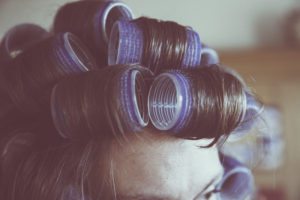 Public Liability
Public Liability
People go to hair and beauty salons to look good and feel better about themselves. But salons and the treatments they carry out are not without risk. Because of the nature of the environment, there a number of increased risks to your customers, including:
- Trips and slips due to spilt beauty products and improperly stored equipment
- Allergic reactions triggered by treatments
- Other injury or loss caused by treatments carried out and the actions of salon staff
Unfortunately, not even the most safety-conscious and professional of salons can prevent all of these eventualities all of the time. If they do occur, you can find yourself liable to compensation claims costing tens of thousands of pounds or even more.
Protecting your business
Protect your business against the financial consequences of these risks, by taking out public liability insurance. This will cover the cost of any compensation claims made against your business by customers or any other members of the public.
Allergic reactions are a key concern for anyone with a beauty business. Most salons use a wide range of products and chemicals every day. As it is difficult to predict how one individual may react to any specific treatment, it is important to perform tests to determine if clients may suffer an allergic reaction.
In a recent story published in the Huffington Post, two sisters spoke of their horror at suffering allergic reactions to hair dye at a Birmingham salon. The sisters had visited the salon together in January to have their hair dyed. But the treatment went wrong when one sister started to struggle to breathe, her face swelled, and she was hospitalised. The other sister developed sores on her scalp and her hair turned green.
Both sisters are now suing the hair salon, which fortunately has insurance to cover the legal costs and any subsequent payout. This story however highlights the importance of carrying out patch tests 24 hours before appointments, so any serious allergic reactions can be avoided.
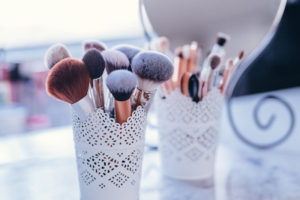 Product liability
Product liability
If you stock hair, health, and beauty products which can be purchased and used off the premises, it’s worth considering product liability insurance. This protects you financially in the event that these products result in damage or loss and you are sued.
Employer’s liability
As an employer, you are legally required to have sufficient employer’s liability insurance. This covers any compensation claims that your staff may pursue against you in the event of an accident at work or ill health resulting from their work activities. You’ll need it if you employ any members of staff, including staff working part-time or apprentices. If you don’t have it, you risk hefty fines. Aside from being a legal requirement, it will give you peace of mind that your business is protected.
Protecting yourself
What happens if you have an accident or fall ill and can’t work? Could your business survive? If you are a lynchpin of your salon business, then it may suffer considerably if you are unable to run it. For this reason, it is often worth investing personal injury insurance. This will cover you for any loss of earnings or business income as a result of circumstances beyond your control.
How to save money on your beauty salon insurance
Below we outline the main types of insurance that you may want to consider including within your beauty salon insurance policy. But not all insurance policies are created equal, and it can quite literally pay to shop around.
One of the first things you should consider is whether you should go direct to an insurer or whether you should go through an insurance broker. In many cases, a specialist broker will be the better option. That’s because they are able to compare and select from a wide number of different insurers, and identify the one which suits your business best. Using a broker can also save you time, leaving you free to get on with your work.
Remember, cost is not the only factor to consider. Comprehensive beauty salon insurance is essential to avoid a nasty shock if you do need to make a claim. You should also pay close attention to any excess that will payable by you in the event of a claim. While high-excess policies may mean an initial lower outlay, they can cost you a lot more in the long run.
General or specialist?
You can save a significant amount on your insurance by going to a specialist beauty salon insurer or broker, such as Park Insurance. Because they understand your business, a specialist broker can offer sound advice on what insurance you do (and don’t) need. Their understanding and links with the industry also means they can negotiate better prices on your behalf.
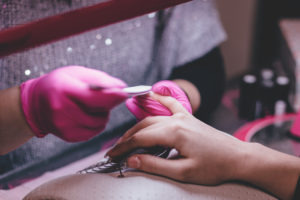 Price comparison websites for beauty salon insurance
Price comparison websites for beauty salon insurance
Insurance comparison sites are not always the best option as they do not cover all insurers. Always be aware that although you may have chosen the best quote listed, there may be many better prices out there!
Additional insurance for salons
There are also other insurance products that you may need to consider.
- If you want to offer home treatments, you will need to contact your insurer to add this to your policy. Your standard salon insurance may only cover you for treatments and activities within the confines of the salon. That means it’s important to extend your coverage if you or your staff are working elsewhere.
- Make sure that your insurance is up to date regarding the types of services and treatments you offer. If you have branched out into providing a new service recently, check if you’re automatically covered for this by your insurance. Because different treatments can result in different risks, they may need to be added to your insurance manually. Failure to do this can result in your policy being voided.
- Most standard policies won’t cover you for training third-party stylists for specific hair, health and beauty techniques. If this is something that you are branching out into you should consider this. For example, if a non-employee carries out a treatment and something goes wrong, you may find yourself liable. Updating your insurance policy can help prevent the negative consequences of this.
Professional indemnity insurance
Also be wary of training others to use a specific treatment or piece of equipment. They could sue you for loss of business or claims against them if they consider you didn’t train them correctly. Professional indemnity insurance will protect you financially in the event of such a claim. That means that if they are successful in suing you, it is your insurance that pays out, not your business.
Professional indemnity insurance also protects you if a client makes a claim which is not related to health and safety. It is not unheard of for people to attempt to sue their hairdresser or beautician for a treatment that has gone awry ahead of an important job interview or other crucial event where they felt that their appearance may have been a significant factor.
Park Insurance – Beauty salon insurance specialists
We hope that you have found this guide to salon insurance useful and insightful. If you have any further queries regarding your insurance or any related matters, please don’t hesitate to get in touch with Park Insurance, brokers with more than 20 years of experience.

